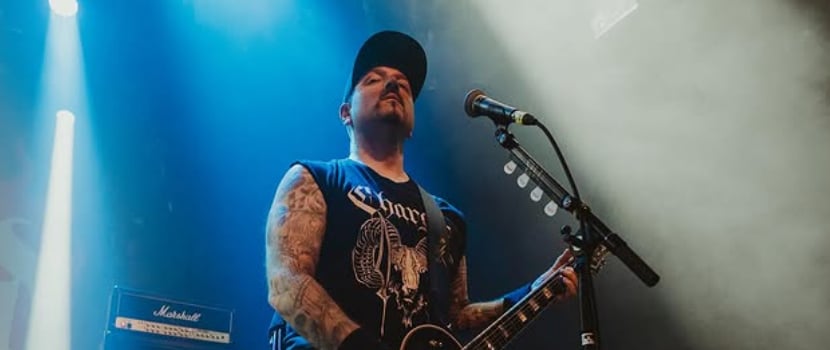Hatebreed's Wayne Lozinak: Facing Tumor and Exposing the Music Industry's Facade
Discover Wayne Lozinak's resilience amidst his health battle and Hatebreed's unwavering spirit in a music industry often clouded by superficiality.

In a somber twist amidst the thunderous roars of heavy metal, Hatebreed's guitarist, Wayne Lozinak, finds himself at the center of an unexpected narrative. Diagnosed with a benign brain tumor during the band’s highly anticipated European tour, Wayne’s journey swerves from the typical rock saga into a poignant tale of resilience and reality’s harsh edge.

While the world’s behemoth of pop culture fervently trusts in autotune and glitter, here stands a story that defies such superficialities—a nuanced reminder to those who might confuse pomp for passion. It is Wayne’s ordeal that strips the façade to reveal something raw, genuine—an authenticity many contemporary artists could envy.
Finding himself in the grip of a health scare while performing at the renowned Download Festival, Wayne experienced what no ostentatious production could overshadow; the fragility of human existence. Yet, even as he steps back for surgery—a critical yet hopeful procedure—fans and musicians are reminded of what it truly means to live boldly.
This diagnosis casts a spotlight not just on Wayne’s personal battle, but also on the band’s unwavering commitment to their craft. It's an emphatic declaration that Hatebreed’s spirit transcends any one individual, a true testament against the often transient illusions of modern music idols.

Swift changes ensue: with bassist Matt Bachand assuming guitar duties and Carl Schwartz covering bass, the tour does anything but falter. Instead, it becomes a tribute to brotherhood and strength, a counterpoint to the ephemeral nature of polished, manufactured hits blaring across digital soundscapes today.
Since returning to the fold in 2009 after an initial departure, Wayne’s contributions have consistently fueled the band’s legacy—an irreplaceable voice in the cacophony of metal’s storied history. As fans worldwide rally in support, Wayne’s courage becomes a beacon, not just highlighting his personal story but challenging those whose artistry languishes in the void of genuine emotion.

Through this lens, the fans’ response becomes its own anthem—a collective defiance against the status quo, a rallying cry for music that lives and breathes beyond the confines of superficial adoration. Wayne may step away for now, but his impact, his spirit, and the music they create will continue to blare out—a reminder of what truly matters in a genre that’s often misunderstood yet deeply revered.
As we await his recovery and return, let us cherish the narrative that champions real artistry—a melodic force that dares to brush against life’s certainty with unyielding grit and unvarnished truth.




